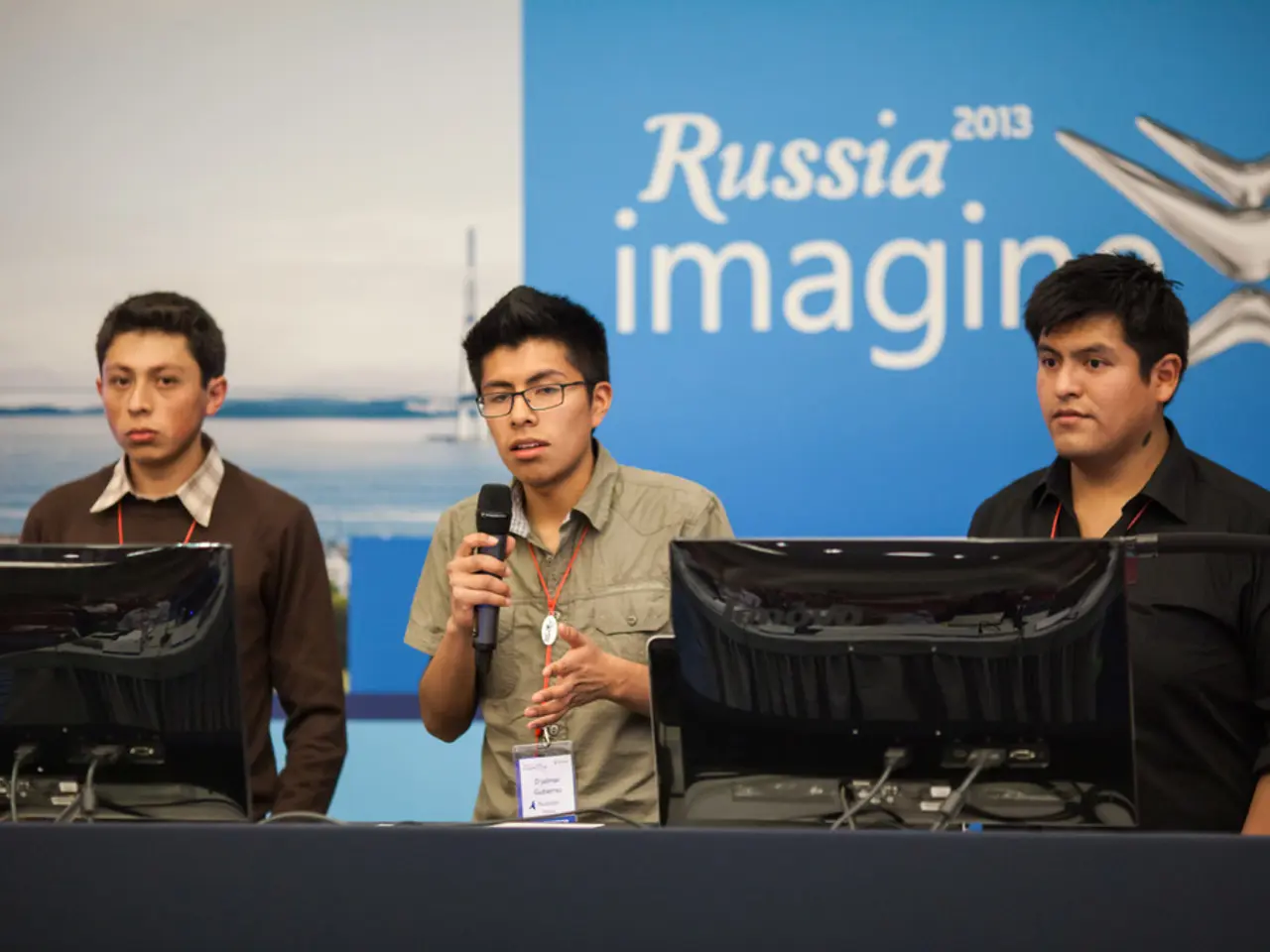TSMC considers Intel's manufacturing facilities as potential targets amid Trump's tariff warnings, though not everyone is in support of this move
The tech industry is abuzz with speculation surrounding Taiwan Semiconductor Manufacturing Company (TSMC)'s reported interest in acquiring Intel's stateside manufacturing plants. This potential acquisition could have far-reaching consequences, particularly in relation to former President Trump's proposed tariffs on foreign production of computer chips.
Trump's tariffs, aimed at encouraging domestic manufacturing, pose a complex challenge. If TSMC, a Taiwan-based company, were to acquire Intel's U.S. fabs, these plants would be under foreign ownership but physically located within the U.S. This ambiguity could create contention about the applicability of tariffs, as the production would be stateside but controlled by a foreign entity.
On one hand, having TSMC operate U.S. fabs could bolster domestic chip production capacity, aligning with the goal of reducing reliance on foreign supply chains and strengthening national security. This might mitigate some tariff pressures or political concerns about "foreign" chip imports, as manufacturing physically occurs within U.S. borders.
On the other hand, if tariffs explicitly target chips produced by non-U.S. companies regardless of geography, then TSMC's ownership might still trigger tariffs on chips made in those plants. This would raise supply chain and cost uncertainties for U.S. customers dependent on those fabs.
Moreover, such an acquisition would have market and geopolitical implications. Given Intel's ongoing struggles and strategic shifts, the sale of its fabs to TSMC could represent a further consolidation of foundry leadership by TSMC. This could potentially undermine U.S. leadership in the tech industry and give credence to the notion that TSMC's foundries are more advanced than Intel's.
Not everyone at Intel appreciates talk of a potential acquisition. Joseph Bonetti, Principal Engineering Program Manager at Intel Corporation, expressed opposition to a potential acquisition by TSMC, believing it would hurt Intel and U.S. leadership.
The potential acquisition could also have a significant impact on the tech market, given TSMC's dominance in the industry and its manufacturing relationships with tech giants like AMD, Nvidia, Qualcomm, and Apple. Most of TSMC's fabrication currently takes place in Taiwan.
The Consumer Technology Association (CTA) predicts a potential rise in prices for consumer tech products, such as video game consoles, laptops, and smartphones, due to Trump's planned tariffs. However, Trump believes any short-term disruption to the cost of consumer tech is worth it in the long run, as it will make the country a fortune.
It is important to note that the U.S. government may not allow such an acquisition to go through. Trump himself has stated that he doesn't want to sell out or give control of Intel to TSMC. Apple has begun manufacturing chips in America, but its facilities are not sufficient to cover the company's production needs.
In 2011, Intel claimed that roughly three-fourths of its microprocessor manufacturing was done in the United States. However, recent reports suggest that there is no telling how much of Intel's manufacturing is currently done in the U.S.
Trump's tariffs could come into effect as soon as April 2, 2025. Studies for these tariffs should be complete by April 1, according to Howard Lutnick. The Wall Street Journal first reported TSMC's interest in Intel's stateside manufacturing plants.
This potential acquisition by TSMC would blur the lines between "domestic" and "foreign" production in the context of tariffs, possibly reducing the effectiveness of Trump's tariff proposals aimed at protecting U.S. manufacturing. It could enhance TSMC's foothold directly within the U.S. while raising complex regulatory and trade policy issues about how to classify and tax chip production in foreign-owned domestic facilities.
- The potential acquisition of Intel's U.S. fabs by TSMC could lead to a shift in the tech industry, as TSMC's advanced foundries might undermine U.S. leadership in this field, potentially making Apple's Mac, along with laptops from other tech giants like AMD, Nvidia, Qualcomm, and smartphone manufacturers, more dependent on foreign technology.
- The Consumer Technology Association (CTA) predicts that Trump's tariffs could cause a rise in prices for consumer tech products, such as gaming laptops, video game consoles, and smartphones, which couldresult in a more expensive gaming experience for customers.
- The prospective acquisition of Intel's manufacturing plants by TSMC could have geopolitical implications, as it would expand TSMC's presence in the U.S., giving it a stronger foothold domestically while raising complex regulatory and trade policy issues about how to classify and tax chip production in these facilities.
- The laptop processor's RAM and CPU are essential components that determine a computer's performance in gaming, sports simulations, or professional applications. Given TSMC's advancements in manufacturing these crucial components and Intel's ongoing struggles, a potential acquisition by TSMC could have a significant impact on the quality and performance of these electronics.




